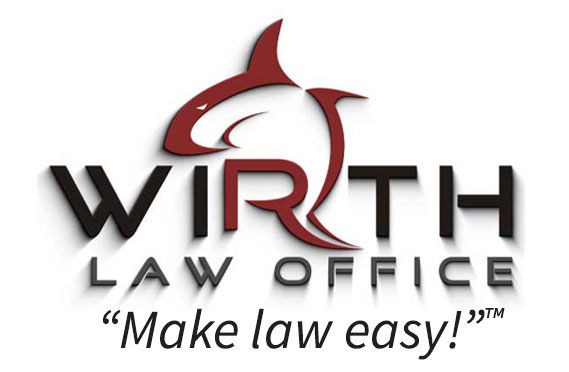 When enrolling your child in a private school, understanding their rights within that institution is crucial. Unlike public schools, which must adhere to constitutional and statutory guidelines, private schools operate under different rules primarily governed by contract law. Here’s a detailed look at what you need to know about your children’s rights in private schools in Oklahoma.
When enrolling your child in a private school, understanding their rights within that institution is crucial. Unlike public schools, which must adhere to constitutional and statutory guidelines, private schools operate under different rules primarily governed by contract law. Here’s a detailed look at what you need to know about your children’s rights in private schools in Oklahoma.
The Role of Contract Law in Private Schools
Private schools are governed largely by the contracts signed between the parents and the school. This enrollment agreement outlines the expectations, rules, and rights of both parties. As a parent, you should carefully review these terms before enrolling your child. This document typically includes:
- Disciplinary policies
- Academic expectations
- Extracurricular requirements
- Search and seizure rules
In essence, the rights and responsibilities of both the school and the student are defined in this contract. If a dispute arises, these terms will be the primary reference point.
Search and Seizure Policies
Unlike public schools, private schools are less bound by constitutional rules like the Fourth Amendment which protects against unreasonable searches and seizures. Since private schools are not state entities, they can implement their own search policies, provided they comply with the terms of the contract and are not outside the bounds of what is considered unreasonable.
Key Points on Search and Seizure:
- Broad Discretion: Private schools can search students and their belongings as long as it aligns with the agreed-upon terms.
- Reasonable Limits: While private schools have broad authority, actions that are patently unreasonable—such as unjustified strip searches—could lead to legal issues.
It’s essential for parents to understand the school’s search policies and ensure their child knows what to expect.
Discrimination Policies in Private Schools
Private schools are not subject to the same anti-discrimination laws as public schools as long as they do not receive any federal funding. This can lead to significant differences in how students are treated. The following are some of the permitted bases for discrimination:
- Religious Beliefs: Private religious schools can set enrollment and retention policies aligned with their beliefs, even if it means discriminating against LGBTQ students.
- Other Categories: Some forms of discrimination, outside race, may be permitted depending on the institution’s policies and the signed contract.
The following are some of the prohibited bases for discrimination:
- Race: Private schools cannot discriminate based on race due to federal laws and longstanding judicial precedents.
- Disability: Although requirements to provide accommodations for disabled students are lower than in public schools, private schools not receiving federal funding must provide reasonable modifications to policies to accommodate disabled students.
Parents should inquire about a school’s policies regarding inclusivity and diversity before enrolling their child.
Addressing Concerns or Disputes
When concerns arise about a private school’s treatment of your child, parents have a few options:
- Withdrawal: The simplest and most immediate remedy is withdrawing your child from the school. This is a practical option if the school’s policies or actions are no longer acceptable.
- Legal Action: If a dispute cannot be resolved amicably, consulting an attorney experienced in education law is essential. A Wagoner attorney can help review the contract and assess whether the school has breached its terms.
The Importance of Legal Representation
Private schools may not be held to the same constitutional or statutory standards as public schools, but they are still accountable to the agreements they make. If you encounter issues, seeking legal counsel can help you protect your child’s rights.
Organizations like Wirth Law Office specializes in advocating for parents and children. Our understanding of both contract law and family law makes us a valuable resource for resolving disputes with private schools.
Practical Advice for Parents
To ensure your child’s experience in a private school aligns with your expectations, keep the following in mind:
- Understand the Contract: Read the terms thoroughly before signing. Clarify policies on discipline, searches, and discrimination.
- Maintain Open Communication: Engage with school administrators to address concerns early. Foster a positive relationship with teachers and staff.
- Be Prepared to Advocate: Know your legal options if disputes arise. Consult an attorney to review the contract if necessary.
Schedule a Consultation With a Wagoner Attorney Now
Private schools in Oklahoma operate under a unique legal framework that provides them significant discretion. While this allows flexibility in creating policies, it also means parents must be proactive in understanding their child’s rights. By thoroughly reviewing contracts, maintaining open communication, and seeking legal representation from a Wagoner family law attorney when needed, you can ensure that your child’s experience at a private school is positive and aligned with your expectations.
For parents navigating these challenges, Wirth Law Office is here to help.If you’re facing issues with a private school in Oklahoma, don’t deal with this alone. Contact us today to protect your child’s rights and secure their future! Call us at (918) 485-0335 to get started with your initial consultation with one of our experienced and knowledgeable attorneys.







